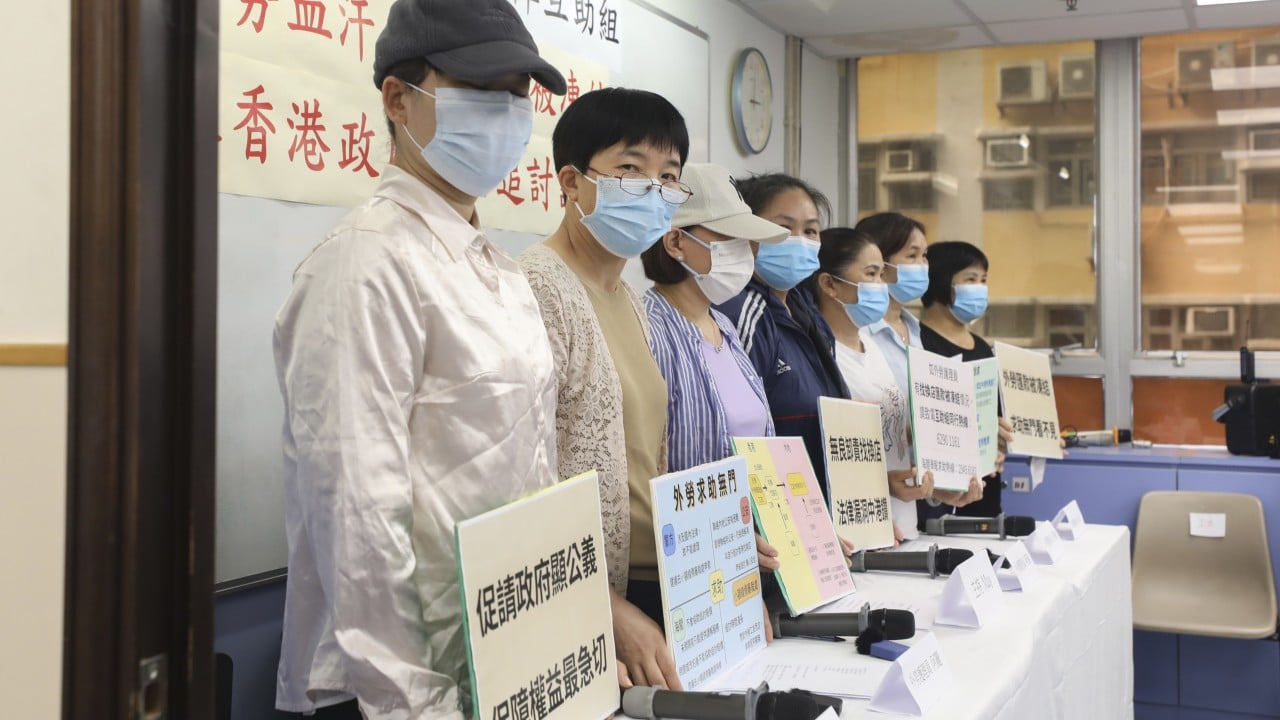A group of care workers from mainland China has appealed to Hong Kong authorities to help get back HK$1 million (US$128,270) frozen by cross-border law enforcement on suspicion of money laundering in connection with two city currency exchange shops.
Members of the Imported Care Worker Mutual Aid Group for Rights Protection on Friday said they had seen a surge of cases in the past two months, involving 19 workers who fell victim to suspected money laundering which is under investigation on the mainland.
Four victims told the Post that they received calls from law enforcement officials in China, who warned the transactions had been frozen and not transferred to their relatives’ accounts.
A woman nicknamed “Ah Lai”, who has worked in a city care home for 13 years, said she felt “helpless” after Hong Kong Customs, in charge of oversight of currency exchange shops, turned her away and asked her to pursue legal action against the owner of the now-closed store.
The 53-year-old said the force declined to proceed with her complaint on the grounds it was outside their jurisdiction as mainland authorities were involved.
“I worked hard in Hong Kong to earn money,” she said. “Now I do not know where to go or who I can seek help from – I only want my hard-earned money back.”
She transferred more than HK$64,000 to a relative’s bank account in China in November 2022, but the cash was intercepted by mainland officers, who froze the money.
Au Lai negotiated with the currency exchange shop but the owner refused to reimburse her money. She said the shop was closed down soon afterwards.
She said more than a year had passed since she filed a claim through the Small Claims Tribunal in a bid to get her money back.
But Ah Lai she remained mired in “lengthy” legal proceedings.
Migrant workers in care homes at present earn the median of HK$14,820, according to government statistics.

Another victim, who asked to be identified only as “Ah Lin”, also lost about HK$13,000 after her money was similarly put on hold in the remittance process.
She was asked by the mainland authorities to make several trips back to her hometown to prove that she was innocent and had no idea the bank account she transferred money to was associated with a suspected fraud.
But Ah Lin said she was unable to get leave from the care home and had to delay the mainland officer’s questioning, leading to her bank cards and accounts being shut down.
One care worker, who identified herself only as May, along with the NGO Caritas Labour Development Project, helped the victims to form a campaign group to fight their case.
May appealed to the authorities to “take the matter seriously” and investigate licensed money exchange shops that exploited loopholes in the law to carry out illegal activities.
Customs said on Friday night it had prosecuted 47 currency exchange shops for violation of licensing rules between 2023 and July this year.
The service said 613 individuals asked for help in connection with frozen bank accounts.
“We are contacting law enforcement on the mainland and discussing how to effectively assist the customers who have issues with frozen accounts during the remittance process,” Customs added.


